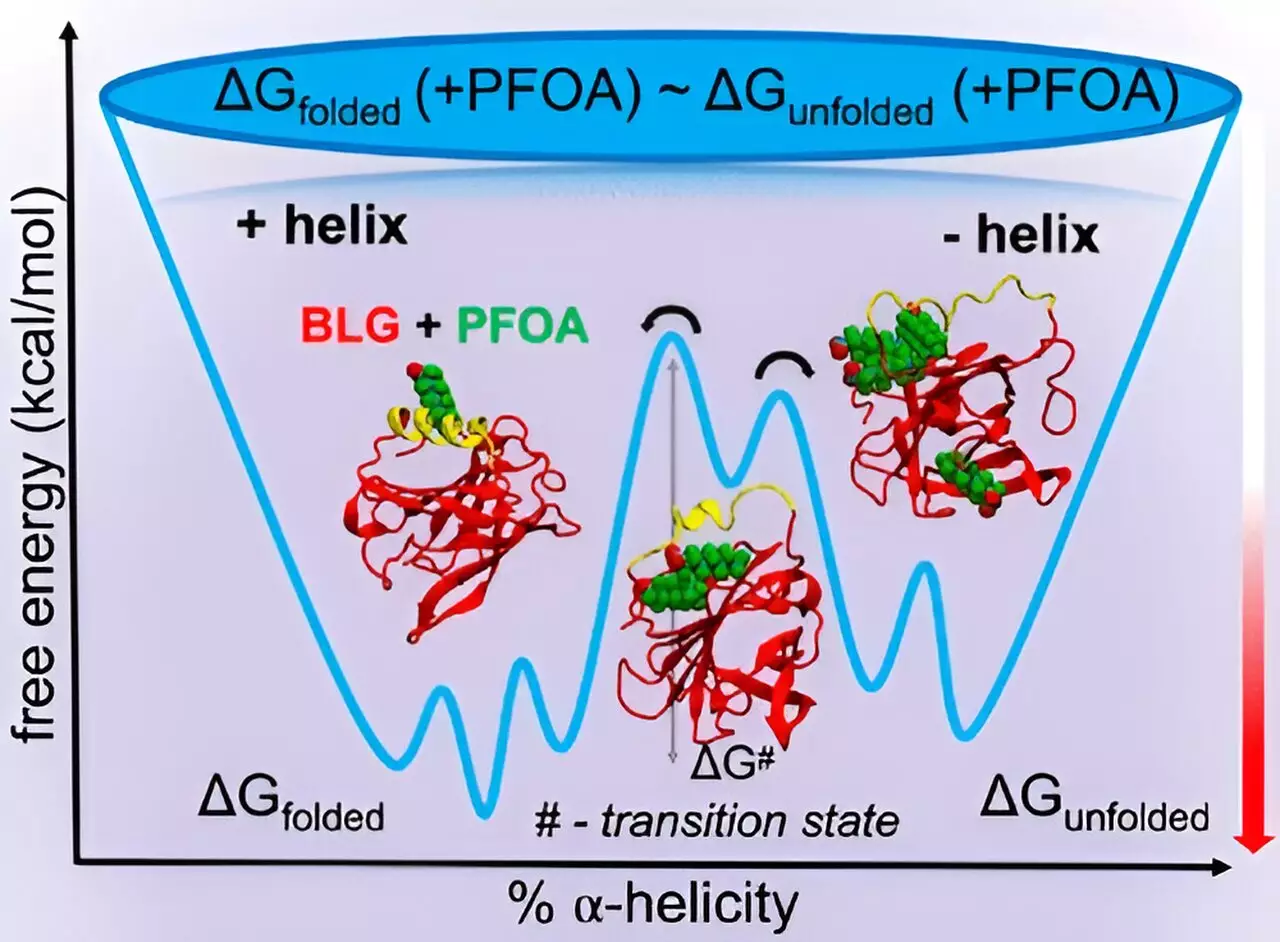In recent studies conducted at The University of Texas at El Paso, researchers have delved into the effects of nanoplastics and per- and polyfluoroalkyl substances (PFAS) on human health. These manmade compounds, often referred to as forever chemicals, have been linked to detrimental health outcomes. The findings shed light on how these substances disrupt biomolecular structure and function, particularly focusing on proteins critical to human development and function.
The research team at UTEP discovered that nanoplastics and PFAS have the capability to alter proteins essential for human health. Specifically, these compounds can “dissolve” a region of proteins known as the alpha helix, transforming them into beta sheets. This alteration was unexpected and holds implications for the development of safer alternatives to materials currently in use. The team also noted similarities between the effects of nanoplastics and PFAS on proteins and the processes that lead to neurodegeneration.
Key Findings
One of the proteins studied, beta-lactoglobulin (BLG), found in milk and infant formula, plays a crucial role in vision and brain development in infants. Exposure to nanoplastics and PFAS was found to decrease the binding efficiency of BLG to important nutrients like retinol and fatty acids, potentially causing developmental issues in neonatal infants. Similarly, alpha-lactalbumin, present in human breast milk and involved in lactose synthesis, was found to have its structure compromised by nanoplastics and PFAS. This disruption could impact lactose formation and lead to developmental defects in infants.
Additionally, myoglobin, responsible for storing oxygen in the blood and muscles, was found to have compromised functionality due to exposure to nanoplastics and PFAS. This disruption could manifest in health issues such as breathlessness and anemia. The research team also observed impaired locomotion in worms exposed to nanoplastics, indicating the potential for broader impacts on different organisms.
The implications of these findings are significant, as they highlight the need for further research and potential policy changes regarding the use and disposal of nanoplastics and PFAS. Understanding the molecular mechanisms through which these compounds disrupt cellular functions is crucial for developing strategies to minimize their impact on human health and the environment. The ongoing studies by the UTEP research team aim to explore the effects of other plastics and PFAS compounds, broadening our understanding of the risks associated with these materials.
The research conducted at UTEP underscores the urgency of addressing the impact of nanoplastics and forever chemicals on human health. By unraveling the ways in which these compounds alter biomolecular functions, scientists are paving the way for safer alternatives and informed decision-making regarding their use. The collaboration between researchers, led by Dr. Mahesh Narayan and Dr. Lela Vukovic, exemplifies the innovative and transformative work being done to tackle global challenges in public health and environmental sustainability.


Leave a Reply